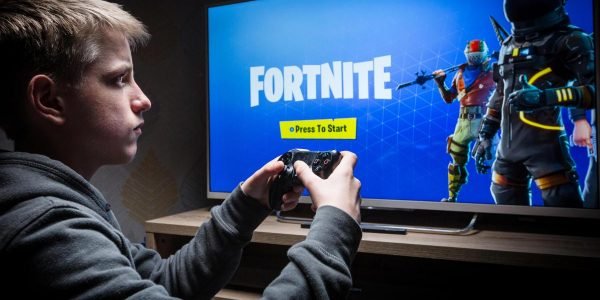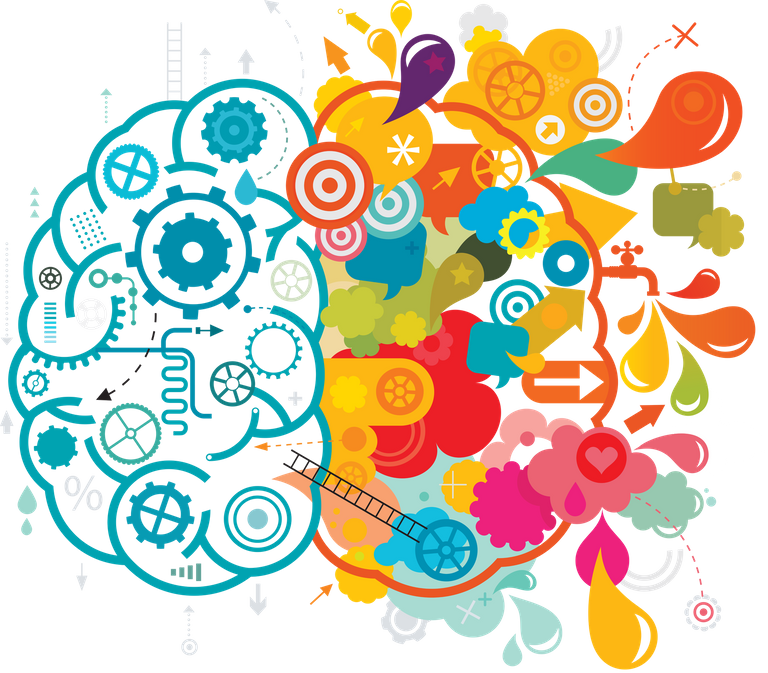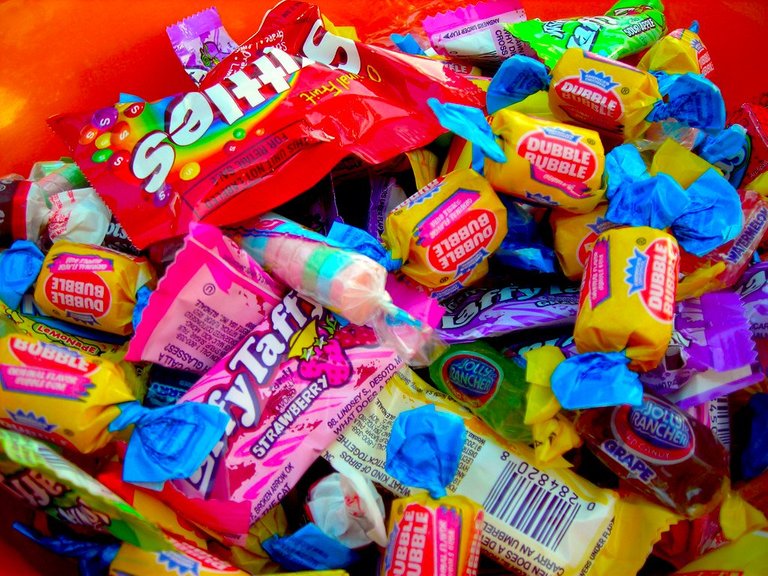NEWS Headlines blazon FORTNITE = ADDICTION are half correct in their data but completely jump to insane conclusions! I recognize and understand only partial truths regarding what the articles are proclaiming, I looked deeper to how our brains actually respond to video game stimuli, and what we can do to solve this whole situation.

“[Players] are not sleeping. They are not going to school. They are dropping out of social activities. A lot of kids have stopped playing sports so they can do this,” Michael Rich, director of the Clinic for Interactive Media and Internet Disorders at Boston Children’s Hospital, said." Story from the website Cult of Mac.
"Her 17-year-old son, Carson, has been logging 12 hours a day on the video game, searching for weapons and resources in a post-apocalyptic world where the goal is being the last person standing. Teachers complain he falls asleep in class and his grades have plummeted." - Bloomberg reports this.
The reward part of one's brain lights up whenever that person is playing video games. The rush of the battle, the "I WAS SO CLOSE TO WINNING". Earning a kill, and gathering items all hit the reward part of your brain which releases dopamine and other feel-good chemicals. In an article by Psychologytoday Kent C. Berridge explains that there are two reward systems in our body the first is the "wanting" the second is the "liking". The "Wanting" is when your searching for the "liking" or reward that makes you feel good and satisfied. The double edge sword is that the "Wanting" is much stronger so we all search for more rewards then stop to enjoying them. Part of the reason is that tons of more dopamine is released right before the big reward than when you achieve it. Tieing this to Fortnite or other video games; becoming "so close to winning" makes your "wanting" system all fired up to play again. The cycle will continue and continue. That's when these headlines and news articles blast everywhere saying: "VIDEO GAMES ARE JUST AS ADDICTIVE AS DRUGS!!"
.jpg)
This is a very real reward system pattern that video game designers use to make the video game more exciting and fun.
Does this mean our reward system is flawed?! Are we doomed to fail? Do we not actually like the activity we think we do?
Let me respond with this: Our reward system is not the problem! Sure maybe it causes us to do a little more meaningful dopamine full tasks. But for an emotionally, mentally, spiritually healthy person our reward system is great! It helps us become motivated to follow our dreams, go on the grind, find our drive to change the world! Being your best self, connect with other people, and enjoying art and nature. But for most of us, (including me) we need to work on that emotionally, mentally, spiritually healthy part. As well as following our dreams part. I'm arguing that the reason people are becoming addicted to Fortnite, and other video games are that we have not yet mastered being emotionally healthy.
 People farther back in time probably had the same level of emotional mastery but the system in video games now takes advantage of us if we don't set boundaries and work on ourselves. It's not exactly that the video game's rewarding feelings force us to become addicted it's that the amount of dopamine and other reward centered chemicals from that stimuli distracts, and numbs out our emotions. Remember shame sadness, anxiety, and emptiness? It's been awhile, hasn't it? Whether you're aware of this phenomenon or not, human beings are just wired to run away from feeling pain and only push for pleasure. This reaction is a curse and a gift. This is what I see and understand as the real reason people are "becoming addicted" not Fortnite, sugar, social media, movies, Netflix, soda other videos games, or our reward system!
People farther back in time probably had the same level of emotional mastery but the system in video games now takes advantage of us if we don't set boundaries and work on ourselves. It's not exactly that the video game's rewarding feelings force us to become addicted it's that the amount of dopamine and other reward centered chemicals from that stimuli distracts, and numbs out our emotions. Remember shame sadness, anxiety, and emptiness? It's been awhile, hasn't it? Whether you're aware of this phenomenon or not, human beings are just wired to run away from feeling pain and only push for pleasure. This reaction is a curse and a gift. This is what I see and understand as the real reason people are "becoming addicted" not Fortnite, sugar, social media, movies, Netflix, soda other videos games, or our reward system!

How can we help master our emotional understanding and healing? Well, that's several topics on its own. Most importantly we need to understand that addiction to Fortnite is almost the same as being addicted to sugar, or social media, etc. It's pretty much the same stuff just using a substance to numb and distract yourself from your emotions. Steps to become an emotionally mastered person is:
- Allow and accept your emotions they are not bad or wrong.
- If feeling a craving for something before consuming your substance of choice take 2 minutes at a time to consciously feel that emotion not picturing it in your head or trying to find meaning and reasons just feeling it in the body.
- Do a meditation practice, try to do it daily there are tons of benefits and will this practice will help you become an emotionally mature human!
- Understanding and researching more into emotional mastery.
- Don't just look into the Headlines of Articles, read it if you want and check the sources as well. (They can be sneaky about it).

In summary, our reward system or Video games are not the problems. It's that we want to block and distract ourselves from our emotions or the emptiness we feel that causes addiction. To heal we need to be aware and activity consciously allowing and feeling your emotions first and later having a fun time playing video games or devouring that nice chocolate on the desk. Thank you for reading my blog post! please Upvote, and re-steem this article!
Dopamine will fire up in my brain if you do Haha! Have a great day, peoples!
Citations:
https://www.cultofmac.com/616850/fortnite-addiction-is-real-warn-health-professionals/
https://www.telegraph.co.uk/news/2018/06/12/addictive-video-games-may-change-childrens-brains-way-drugs/
https://sciencing.com/this-is-why-fortnite-is-so-addictive-13715436.html
https://www.psychologytoday.com/us/blog/brain-wise/201802/the-dopamine-seeking-reward-loop